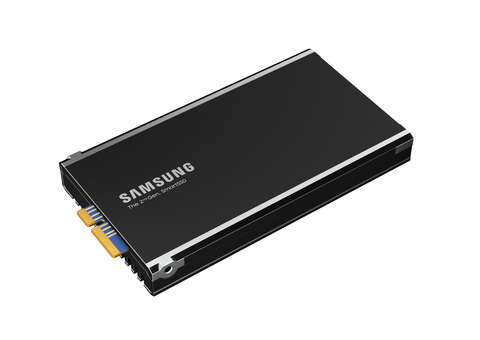Samsung Electronics Develops Second-Generation SmartSSD Computational Storage Drive with Upgraded Processing Functionality
Cuts processing time by over 50%, energy consumption by up to 70% and CPU utilization by up to 97% compared to conventional SSD drives
Samsung Electronics Co., Ltd., the world leader in advanced memory technology, today announced that it has successfully developed a second generation of its pioneering SmartSSD.
The new proprietary computational storage incorporates data processing functionality within a high-performance SSD. Unlike existing SSDs, Samsung’s SmartSSD can process data directly, thereby minimizing data transfers between the CPU, GPU and RAM. This technology can avoid the bottlenecks that often occur when moving data between storage devices and CPUs, resulting in markedly improved system performance and much higher energy efficiency.
Recommended AI News: Pecan AI Announces One-Click Data Science Model Deployment

The SmartSSD is playing an increasingly important role, especially with the growth of next-generation technologies such as AI, machine learning and 5G/6G, which require large amounts of data processing.
Leveraging software and intellectual property (IP) developed by customers, along with in-built Arm cores, Samsung’s second-generation SmartSSD enables much more efficient data processing. Compared to conventional data center solid-state drives, processing time for scan-heavy database queries can be slashed by over 50%, energy consumption by up to 70% and CPU utilization by up to 97%.
Since its development in 2020 through the joint efforts of Samsung and AMD, the first-generation SmartSSD is being supplied to global IT companies including video communications platform providers. The first-generation SmartSSD was recognized as an Innovation Awards Honoree at CES 2021 for its outstanding performance and energy efficiency.
Recommended AI News: Waymark Launches Scalable Machine Learning Platform to Accelerate Video Creation for TV and OTT
“Commercialization of the first-generation SmartSSD, in collaboration with AMD, established that the computational storage market has great potential,” said Jin-Hyeok Choi, Executive Vice President and Head of Memory Solution Product & Development at Samsung Electronics. “With the upgraded processing functionality of the second-generation SmartSSD, Samsung will be able to easily address increasing customer needs in the database and video transcoding sectors, as we expand the boundaries of the next-generation storage market.”
“Powered by Xilinx Versal™ Adaptive SoCs from AMD, second-generation Samsung SmartSSDs enable improved CPU efficiency and greatly reduced energy consumption by efficiently integrating the computing and storage functions in data centers,” said Sina Soltani, Corporate Vice President of Sales, AECG, Data Center and Communication Group at AMD. “As data-intensive applications continue to grow, second-generation Samsung SmartSSDs will deliver the superior performance and efficiency required for this expanding market.”
Samsung Electronics is leading efforts to standardize SmartSSD technology through close collaboration with the Storage Networking Industry Association (SNIA) and with NVM Express, while seeking to expand the boundaries of SmartSSD devices through technological validation for a wide variety of applications.
Recommended AI News: Avertium Fusion MXDR for Microsoft Security
[To share your insights with us, please write to sghosh@martechseries.com]

Comments are closed.